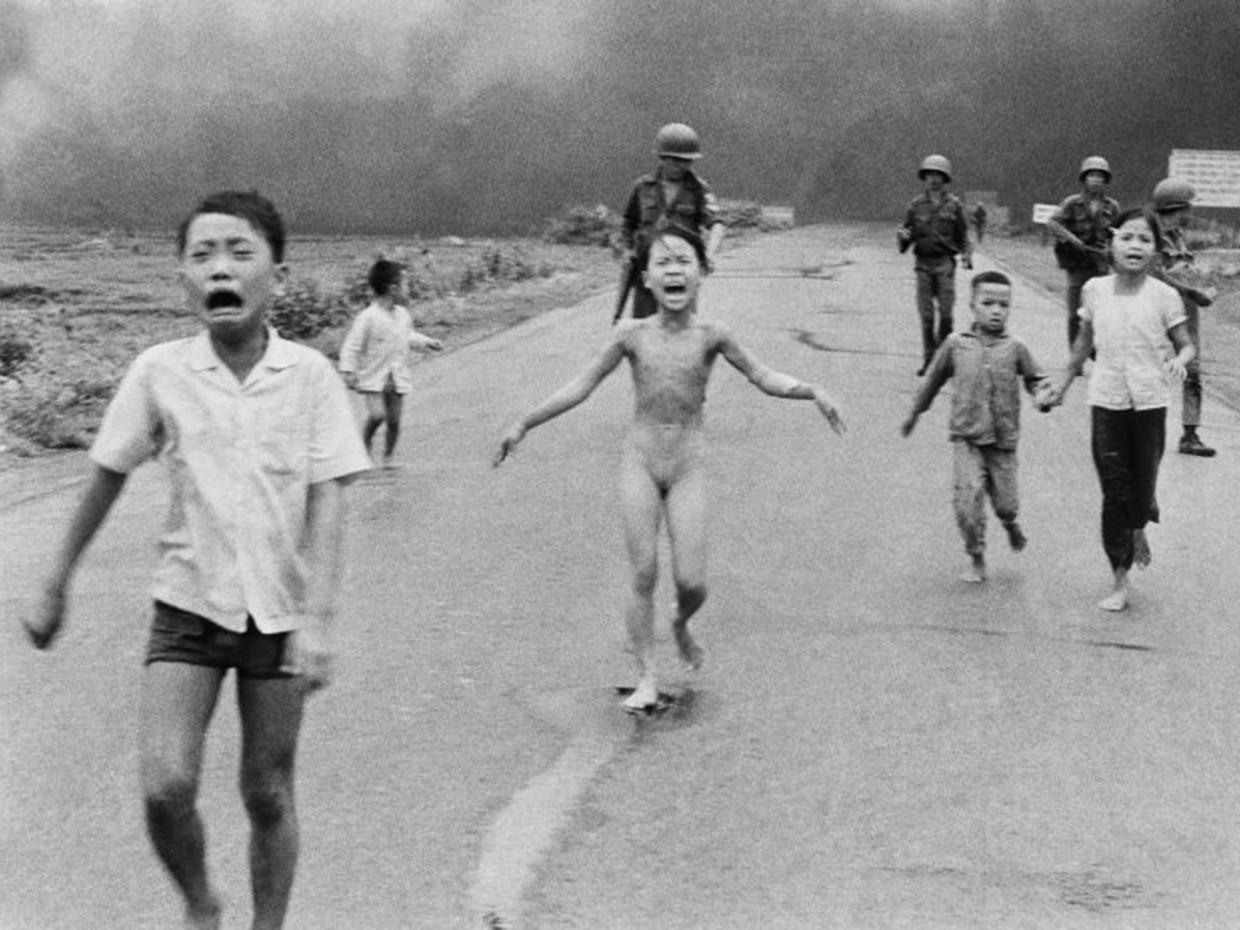An iconic photograph of Vietnamese children running from a napalm attack crying in fear, one of them a naked nine-year-old, has been taken down from Facebook, due to their strict no nudity clause. However, after a lot of criticism, particular from the editor of Norway’s largest newspaper Aftenposten, who published an open letter to Mark Zuckerberg accusing the billionaire of censorship and editing history, Facebook reinstated the photograph.

The photograph was taken in 1972 by photographer Nick Ut of the Associated Press who won a Pulitzer prize for it. The photograph was banned repeatedly by Facebook for violating their censorship rules. When one of the writers of the Norwegian newspaper, Tom Egeland, posted the photo on his account, his page was temporarily blocked. Following this, it was posted on the official account for the newspaper when Facebook removed the image again.
“Any photographs of people displaying fully nude genitalia or buttocks, or fully nude female breasts, will be removed” was cited in an email from Facebook.
When the editor of Aftenposten penned an open letter to Mark Zuckerberg the letter was published on the front page accusing him of censoring free speech.

The prime minister of Norway, Erna Solberg also complained after having the photograph removed from one of her posts.
“Facebook gets it wrong when they censor such images” said Solberg
Hansen said Zuckerberg should live up to his role as “the world’s most powerful editor.”
Hansen said “I think you are abusing your power, and I find it hard to believe that you have thought it through thoroughly. I am worried that the world’s most important medium is limiting freedom instead of trying to extend it, and that this occasionally happens in an authoritarian way.” He said that Facebook needed to be able to “distinguish between child pornography and famous war photographs.”
After this outcry Facebook reinstated the Napalm girl photo and admitted that they do not always get it right and recognised their actions as removing the photographs as mistakes.
“After hearing from our community, we looked again at how our Community Standards were applied in this case. An image of a naked child would normally be presumed to violate our Community Standards, and in some countries might even qualify as child pornography. In this case, we recognise the history and global importance of this image in documenting a particular moment in time” Facebook said in a statement.
“Because of its status as an iconic image of historical importance, the value of permitting sharing outweighs the value of protecting the community by removal, so we have decided to reinstate the image on Facebook where we are aware it has been removed.” Facebook said in a statement.






